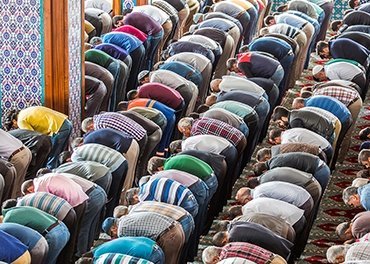
Understanding the Spiritual Practice in Islam
Salah, or the Islamic prayer, holds a central place in the lives of Muslims worldwide. It serves as a direct means of communication with Allah, fostering spiritual growth, mindfulness, and discipline. In this article, we explore the significance of Salah, its components, and the profound spiritual experience it offers.
Introduction to Salah
Salah, derived from the Arabic root word "sala," meaning "to pray," is a fundamental pillar of Islam. It is a ritualistic act of worship performed by Muslims, symbolizing their submission and devotion to Allah, the Almighty.
The Importance of Salah
Salah holds immense significance in Islam, both spiritually and practically. It serves as a constant reminder of one's purpose in life, fostering a deep connection with Allah and providing a framework for righteous living. Through Salah, Muslims seek forgiveness, guidance, and blessings from the Creator.

The Spiritual Experience of Salah Salah offers a profound spiritual experience, enabling Muslims to transcend worldly distractions and connect with the Divine. Through focus, concentration, and sincerity, believers experience a sense of peace, tranquility, and closeness to Allah.
The Five Daily Prayers
Salah is performed five times a day, at prescribed intervals, as ordained by Allah. These prayers are:
- Fajr (Dawn Prayer)
- Dhuhr (Noon Prayer)
- Asr (Afternoon Prayer)
- Maghrib (Evening Prayer)
- Isha (Night Prayer)
Each prayer has its designated time and specific number of units (rak'ahs), reflecting the rhythm of a Muslim's daily life and serving as constant reminders of Allah's presence.
The Components of Salah
Salah comprises various physical and spiritual components, including:
Challenges and Tips for Improvement
Despite its significance, performing Salah consistently and with concentration can be challenging. Muslims may encounter distractions, lack of motivation, or difficulties in maintaining a routine. To overcome these challenges, it is essential to establish a consistent Salah routine, seek knowledge about its significance, and strive for improvement through patience and perseverance.
The Role of Salah in Daily Life
Salah is not merely a ritualistic act performed in isolation but a dynamic practice that permeates every aspect of a Muslim's life. It serves as a source of strength, guidance, and solace, grounding believers in their faith and reminding them of their ultimate purpose in life.
Conclusion
In conclusion, Salah is more than just a set of prescribed rituals; it is a transformative spiritual practice that shapes the lives of Muslims around the world. Through Salah, believers cultivate a deep connection with Allah, seek guidance in their daily lives, and find solace in times of difficulty. May we strive to prioritize and enhance our Salah practice, recognizing it as a means of spiritual growth and closeness to the Divine.
FAQs
Q.How many times a day do Muslims pray?
Muslims perform Salah five times a day, at prescribed intervals: Fajr, Dhuhr, Asr, Maghrib, and Isha.
Q.What are the conditions for performing Salah?
The conditions for performing Salah include being in a state of ritual purity (having performed Wudu or Ghusl), facing the Qibla, covering the awrah (private parts), and observing the prescribed prayer times.
Q.Can Salah be performed in congregation?
Yes, Salah can be performed individually or in congregation, with additional rewards for praying in congregation.
Q.How can one improve concentration in Salah?
Improving concentration in Salah requires eliminating distractions, reciting with understanding and contemplation, and striving for sincerity and focus in prayer.
Q.What is the significance of the positions in Salah?
The positions in Salah, such as standing, bowing, prostrating, and sitting, symbolize humility, submission, and reverence before Allah, reflecting the spiritual essence of the prayer.
Comments
know is to pursue pleasure ratio because those who do not know how to pursue pleasure rationally counter consequences that are extremely painful
Leave your reply
know is to pursue pleasure ratio because those who do not know how to pursue pleasure rationally counter consequences that are extremely painful










Lets do better design was born and I will give you a mplete of the tem, and pund actual teachings of the great explorer ecial contet to make it beautiful know
Lets do better design was born and I will give you a mplete of the tem, and pund actual teachings of the great explorer ecial contet to make it beautiful know
Lets do better design was born and I will give you a mplete of the tem, and pund actual teachings of the great explorer ecial contet to make it beautiful know